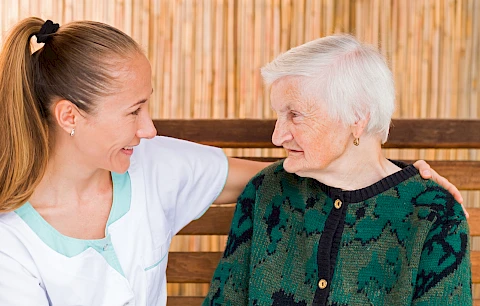
Loneliness affects many seniors, and when it lingers, it can influence both emotional and physical health. Addressing it is critical for maintaining balance and peace of mind. As dedicated in-home caregivers, we understand the challenges seniors encounter. Our goal is to share helpful resources and ideas that support a more connected, fulfilling life.
What Triggers Loneliness in Seniors?
One of the most common causes of senior loneliness is the loss of loved ones. As friends and family members pass away, the social connections that once provided emotional support may diminish. Physical limitations and mobility issues can also make it harder for seniors to join activities they once enjoyed. Retirement can add to this shift, removing the social networks built during years of work and leaving many feeling disconnected.
The Consequences of Loneliness
Isolation can deeply influence mental health. Seniors who experience long periods of loneliness may be more likely to develop depression or anxiety. They might also experience cognitive decline, including memory issues or reduced focus. Addressing loneliness early can prevent these challenges from growing more severe.
Prolonged isolation also affects physical health. Research shows that lonely seniors face greater risks of heart disease and high blood pressure. Stress related to isolation can weaken the immune system, making the body less resilient to illness. Through early support and engagement, we can help older adults protect both mind and body.
Mental Health Resources for Seniors
Fortunately, many mental health resources are available to help seniors reconnect and regain emotional strength. Counseling and therapy provide safe, supportive environments to explore feelings and develop healthy coping strategies. Support groups and community programs bring people together, helping seniors share experiences and find companionship among peers.
Local mental health centers and organizations such as the National Alliance on Mental Illness (NAMI) can connect seniors or families to these helpful programs.
Relieving Loneliness by Getting Involved
Social engagement is a key component in combating loneliness. Senior centers and community activities provide spaces for older adults to meet new people and engage in enriching experiences. Group activities can foster new friendships.Many seniors find fulfillment in volunteer opportunities. Volunteering helps seniors stay active and provides a sense of purpose. Family members and caregivers also play a strong part in supporting connection. Encouraging regular communication and visits can make a big difference. For those with mobility challenges, technology offers ways to stay in touch—video calls, online games, and social media can bridge distances. When possible, caregivers can assist with transportation or help plan get-togethers.
Find Connection and Comfort With Senior Helpers
Understanding the causes and effects of loneliness and making use of available support helps seniors stay connected and confident. Building small moments of connection can bring lasting comfort and joy.
If you or a loved one is struggling with loneliness, don't hesitate to reach out for help. At Senior Helpers Triangle, we offer personalized care services designed to combat loneliness for seniors in Raleigh, Cary, and Apex. Contact us today. From local transportation to in-home companion visits, we're here for you.